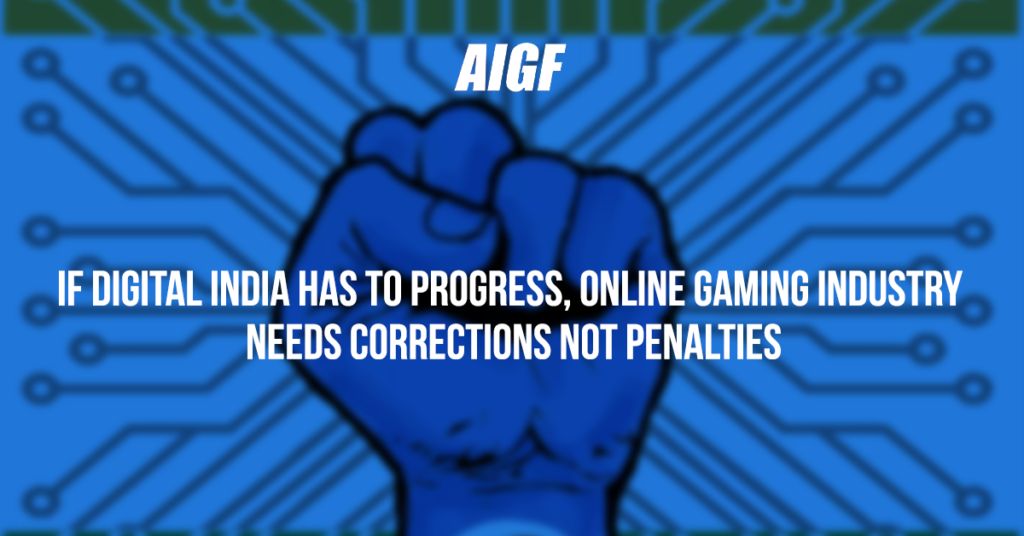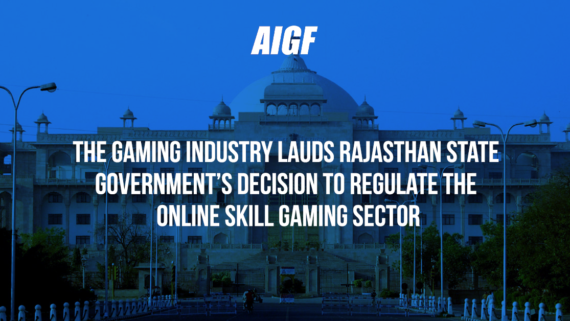The Supreme Court of Karnataka removed the state government’s ban on any type of online gambling, related to financial transactions, in the true spirit of our country and with the potential to strengthen Karnataka’s image as the country’s capital. The Indian Constitution refers to it as “ultra vires” (beyond the power of government agencies).
If Digital India Has To Progress, Online Gaming Industry Needs Corrections Not Penalties
There is a new generation of Indians who take pride in having the correct equipment, ready-to-play players, and an audience that loves new technologies and ideas.
In 2021, a startup became a national unicorn every 8 days; from the beginning of 2022, it has been every 5 days. This has been aided by the climate that has developed in India in recent years, as well as the culture, manufacturing, and unending engagement of young Indian entrepreneurs.
The Supreme Court of Karnataka removed the state government’s ban on any type of online gambling, related to financial transactions, in the true spirit of our country and with the potential to strengthen Karnataka’s image as the country’s capital. The Indian Constitution refers to it as “ultra vires” (beyond the power of government agencies).
The department’s bench issued a document mandamus prohibiting respondents from conducting online gambling business or engaging in related activities. This was preceded by the overturning of similar limitations imposed by their respective state governments by the high courts of Kerala and Madras.
This is an exciting time for both the game industry and India as a booming startup nation. Start-ups in Karnataka would be overjoyed with the ruling, while other start-ups across the nation and international investors would have their faith in the Indian legal system reaffirmed.
The high court judgment makes it quite obvious that a digital India cannot be one where policy is guided by misinformation. While national, progressive, and all-encompassing policies for online gaming are required in India, state authorities and police agencies must collaborate with the industry to create best practices and encourage responsible gaming.
The Universal Service Obligation Fund (USOF), to whom the telecoms industry contributes, is an excellent illustration of how the government has effectively used industry contributions to inspire consumers and improve awareness and access.
Complete bans are a mundane and incapable way of managing any seen issues and have no put within the India of 2022. “Youth Innovation” and deceived choices cannot go hand in hand. In case the dream of a real Digital India is to be realized, inventive arrangements have to be found all over, by all stakeholders, through steady collaboration and inventive issue tackling.
Prime Minister Narendra Modi recently urged for more homemade games that showcase our country’s history and culture to the rest of the globe. Policies that encourage the growth of start-ups and new businesses, as well as a regular interaction process with industry, are two critical aspects that can help these businesses reach their full potential, maximize income, and grow exponentially.
The increased attention comes after the sector experienced a significant growth boom even during the outbreak. Due to the necessity for interactive entertainment as a result of the lockdown, online gaming in India grew at a CAGR of 38% in 2019-2020 and 37% in the following year. According to a Boston Consulting Group analysis, this rise was quicker than social media, which rose by 11% and 26% in the same time periods.
The distinctions between the game of skill and chance are noteworthy. While the former relies heavily on an individual’s skill and effort to win, the latter is entirely dependent on luck. In simpler terms, a game of skill is one in which a player can choose to win or lose, such as chess, and a game of chance is one in which the outcome is determined by chance alone, such as a coin flip.
With each passing day, the reasons why the online gaming sector as well as what it contributes to the table remain a mystery. What is certain, however, is that everyone is paying much attention to the industry, and recent court decisions have affirmed the dominance of skill as a legal business.
INVESTORS ARE OVERJOYED
The sector’s rise also drew the attention of investors, who put in USD 549 billion during the first 3 months of 2021, more than in the entire year of 2020. Consider how much money gaming start-ups raised in 2016 – a meager USD 34 million – to see how investor interest in gaming has grown over the last five years.
Governments have recognized the “dawn industry’s” value and have responded differently towards curiosity and spending time on gaming. Online gaming, like social media, has been met with hostility from some sectors, with the Karnataka ban being an overreaction to a popular form of diversion and connection.
Social media has brought in a creative economy and an easy-to-manage online marketplace in less than a decade, bringing us closer to our goal of a trillion-dollar digital economy. The gaming sector appears to be in a strong position to lead the way in terms of growth and expansion in the next few years.
Friendly Ecosystem
By 2026, it is expected that there will be over 700 million gamers in India, with a market worth close to USD 7 billion. This will make gaming one of India’s most important sectors in terms of reach and market size, as well as position us as a global leader in game production and design.
More funding, greater in-house talent, and much more backing from all stakeholders will be required. Progressive policies, in particular, will be required by start-ups to foster a climate of predictability and reduce the risk for investors and young entrepreneurs. The key to keeping excellent personnel and improving ease of doing business is policy certainty combined with the creation of an ecosystem that encourages innovation and disruption.
With increased frequency, Indian start-ups now have to expand or seek other geographies for their headquarters, such as the United States, the United Kingdom, Ireland, the United Arab Emirates, and Singapore. The need of the hour is for pro-growth policies and an atmosphere that continues to encourage investments and entrepreneurship.
Since we have made progress in this area, we still have a long path to go. In India, for instance, dividend distributions are taxed, whereas Singapore does not. A capital gains tax of roughly 15-20% is levied here, which might be viewed as a penalty for deciding to be an entrepreneur.
Simultaneously, the capital gains tax rate in Singapore is 0%. The policy system may also use a refresh. Start-ups are still getting their feet wet in the corporate world, and they can’t afford to get dragged into long, time-consuming, and costly court fights every time something doesn’t seem right.
In the case of start-ups, where modifications work better than penalties, a light-touch regulatory structure would be optimal. While cities like Tel Aviv and nations like Singapore are doing everything they can to encourage start-up growth, there is always room to improve the Indian start-up environment, starting with more favorable legislation for today’s job creators.
CENTRAL PLANNING IS REQUIRED
Aside from a centralized, universal and liberal regulatory framework under a progressive ministry like MeitY, the ministry and Niti Aayog can collaborate to develop a central set of policies and oversee its implementation across the country.
Because the entire framework will be based upon whether the game in question is more skill-based or luck-based. In this approach, through inspections and certification, a Skill Gaming Council (SGC) could be used to distinguish between skill and chance.
Customer issues should be handled by local grievance officers appointed by gaming businesses. Companies might be given timeframes for responding to grievances they have received.
In the event of non-compliance with the laws, the default companies may be notified to the state police and consumers may pursue legal action. The goal is to bring regulators, industry, and all other key parties together to work for the users’ benefit.
In this context, the Animation, Visual Effects, Gaming, and Comics (AVGC) task group, which was mentioned in the budget, is a promising start toward attaining it and can also consider strategies to enhance domestic capacity to service both Indian and global demand.
JUST ONE TIME
The Karnataka High Court’s decision has indeed been applauded by the gaming industry and millions of gamers, however, the reasons for such restrictions must still be tackled. The Supreme Court’s involvement in the distinction between “games of skill” and “games of chance” established that the latter are allowed in India.
Despite this, skill-based gaming organizations have been unjustly penalized in the past, preventing them from reaching their full potential. Uncertainty in policy is frequently regarded as the most significant hurdle for a sector that now employs thousands of people and is predicted to add about two lakhs new employment within the next 3 years if the appropriate policies are in place.
The game industry is still very much in development and will have obstacles to overcome. We can indeed learn what has to be accomplished by doing it. “We stood on the edge of change,” says Dragon Age II, a popular video game. Keep an eye out for that time, and when it arrives, don’t be afraid to take a chance. The IT sector in India would have been that matter of faith, and now, this new and transforming India of tomorrow faces an extremely bright future in a wonderful world.
Credit: Outlook











Comments
Comments are closed.